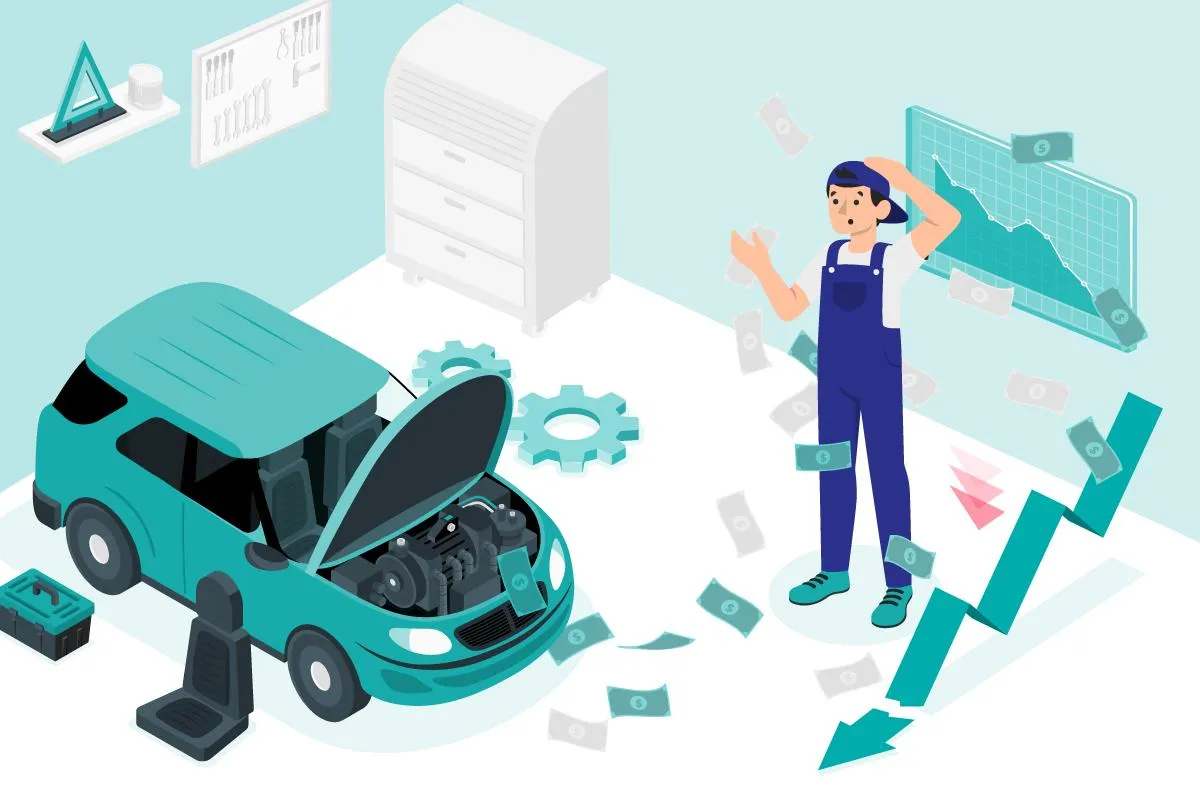
The Hidden Costs of Poor Workflow Management in Automotive Workshops
How Inefficiencies Are Draining Your Profits Without You Even Realising It
Every workshop owner knows that time is money, but what if I told you that poor workflow management is costing your business thousands of dollars each month?
Many workshops are stuck in reactive mode, constantly fighting fires instead of running smoothly. Whether it’s technicians waiting on approvals, parts delays, or service advisors juggling too many tasks, inefficiencies add up quickly.
In this post, we’ll break down the hidden costs of poor workflow management, what common mistakes you might be making, and how structured processes and automation can help you recover lost revenue.
Every delay, miscommunication, or missed opportunity costs money. Here’s how poor workflow management drains your workshop’s profitability:
Wasted Technician Time: When jobs aren’t properly triaged, techs spend time waiting instead of working.
Slow Customer Approvals: If service advisors don’t present estimates effectively, jobs stall and productivity suffers.
Parts Bottlenecks: Ordering parts late or from the wrong supplier leads to delays, unhappy customers, and lost jobs.
Miscommunication Between Departments: Without a streamlined system, service advisors and techs constantly have to stop work to get updates.
Unbilled Work & Missed Upsells: When additional work isn’t documented properly, workshops lose out on hundreds per job.
Every hour your technician is idle or chasing approvals is an hour of lost revenue. If you’re not tracking technician efficiency, start now.

The Most Common Workshop Workflow Mistakes (And How to Fix Them)
🚩 No Pre-Triage Process: If vehicles arrive without a structured pre-triage, service advisors and technicians waste time checking for previously declined work, missing scheduled service items, or scrambling for customer history.
✅ Solution: Implement a pre-triage checklist to ensure all key information is ready before the customer arrives.
🚩 Poor Communication Between Techs & Service Advisors: If advisors aren’t presenting jobs correctly, techs get frustrated, customers hesitate to approve work, and delays stack up.
✅ Solution: Use a structured check-in and job approval script so nothing falls through the cracks.
🚩 No Defined Approval Process for Additional Work: When a technician finds additional issues, but the process to communicate them is unclear, approvals take too long and jobs don’t get done.
✅ Solution: Automate customer approval requests through text or email with images/video so decisions happen faster and your customers feel safer.
🚩 Using Outdated Systems (Or No System at All!): Running your workshop on paper job cards slows everything down, increases errors, and causes unnecessary admin work.
✅ Solution: Switch to digital job cards and workflow tracking to speed up approvals and invoicing.
Optimise Your Workshop Workflow for Maximum Efficiency
If your workflow is holding your business back, it’s time to fix it. Here’s how:
Step 1: Implement a Pre-Triage Process – Ensure all declined work, service history, and customer concerns are reviewed before the car arrives.
Step 2: Standardise Communication & Approvals – Use templates and scripts for check-ins, approvals, and follow-ups.
Step 3: Track Technician Efficiency & Downtime – Use reporting tools to see where time is being wasted and make adjustments.
Step 4: Automate Admin & Customer Updates – Reduce back-and-forth with automated service reminders, job updates, and invoice approvals.
Step 5: Train Your Team on Workflow Best Practices – Regularly review processes to ensure consistency across all staff.
The top-performing workshops have structured workflows that reduce delays, increase approvals, and improve customer satisfaction.
Action Item: Workshop Efficiency Challenge
Step 1: Identify the biggest bottleneck in your workshop (slow approvals, miscommunication, parts delays, etc.).
Step 2: Implement one process change this week (e.g., using a triage checklist or automating customer approvals).
Step 3: Track technician productivity and revenue changes over the next 30 days.
Want to streamline your workflow and boost profits? Book a free consultation with Workwise Auto Solutions today!
